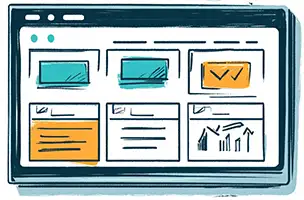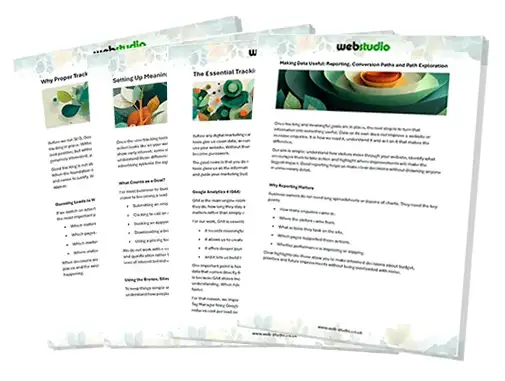Your homepage page title in SEO is prime real estate - a small but powerful tool to communicate your business’s purpose to search engines and users. It’s the text you see on the browser tab when visiting a website and the clickable headline in search engine results. Despite its importance, many websites neglect this crucial element, settling for generic titles like “Home | [Company Name].”
This oversight can lead to missed opportunities for better rankings, more clicks, and increased website traffic. If your website isn’t performing as well as it should on search engines, your homepage title tag might be part of the problem. Let’s dive into why this matters and how you can fix it quickly.

Why Your Title Tag Matters
The title tag is the clickable headline users see in search engine results pages (SERPs). It tells search engines what your page is about and entices users to click. Think of it as your website’s first impression—it needs to be clear, concise, and compelling.
A title like “Home | [Company Name]” adds no value. It doesn’t describe your business, your services, or what makes you unique. Worse, it may discourage users from clicking, reducing your site’s click-through rate (CTR) and potentially hurting your rankings over time.

The Consequences of a Poor Title Tag
We’ve seen firsthand how overlooked title tags can lead to SEO struggles. Recently, we worked with two clients whose websites experienced a noticeable drop in organic traffic after redesigns (not done by us). Upon investigation, we found that their new title tags read “Home”, whereas their previous sites had keyword-rich, descriptive titles.
By revisiting older versions of their websites using tools like the Wayback Machine, we identified this missed opportunity. Once we restored their homepage titles to reflect their business and target keywords, traffic began to recover.

How to Optimise Your Homepage Title Tag
Fixing your homepage title tag is one of the easiest SEO wins. Follow these steps to make sure your title works for you, not against you:
- Keep It Under 65 Characters:
Search engines truncate longer titles, so stick to a length that ensures the full message is displayed in SERPs. - Include Your Primary Keyword:
Incorporate the most relevant keyword for your business. For example, if you’re a web design company in Milton Keynes, a title like “Web Design Company in Milton Keynes | [Company Name]” works well. - Highlight Your Brand Name:
Adding your brand name helps with recognition and trust. Place it at the end of the title for a clean, professional look. - Avoid Generic Terms Like "Home":
Replace "Home" with descriptive language that reflects your business’s unique offerings. - Make It Engaging:
Write for both users and search engines. Use action-oriented language or highlight what makes your business stand out.

Don’t Forget the Meta Description
While optimising your title tag, take a moment to review your meta description as well. This is the short snippet of text below the title tag (headline) in search results, offering more context to potential visitors.
- Keep It Under 150 Characters: Make it concise but enticing.
- Include a Call-to-Action (CTA): Encourage users to click by using phrases like "Learn more," "Explore our services," or "Get started today."
- Reflect the Page Content: Ensure the description aligns with what users will find on your homepage.

The Easy Fix That Makes a Big Difference
By taking just a few minutes to rewrite your homepage title tag and meta description, you can significantly improve your website’s performance in search results. These elements are not just for search engines - they’re what potential customers see first. Make them count.

Your homepage is just the beginning. A well-optimised title tag sets the tone for the rest of your website. Once you’ve tackled this, review other pages to ensure they follow the same principles: concise, keyword-rich titles and engaging descriptions that reflect your business goals.
For businesses looking to stand out, this simple fix can be the difference between blending into the background and standing out in SERPs.

Q: What’s the ideal format for a homepage title tag?
A: Use a descriptive keyword + your business’s unique value + your brand name. For example: “Website Management in Milton Keynes | WebStudio”
Q: How often should I review my title tags and meta descriptions?
A: At least once a year, or whenever you update your site’s content or structure.
Q: What tools can I use to check my site’s title tags?
A: Tools like Google Search Console, Screaming Frog, or free online SEO checkers can help you identify and review title tags.
Q: Can a poorly optimised title tag really affect my traffic?
A: Absolutely. A generic title tag reduces your CTR, which can signal to search engines that your page isn’t relevant - impacting your rankings.
Q: How do I know if my title tag is too long?
A: Tools like Moz or Yoast SEO will flag overly long titles, and you can manually check how they appear in SERPs.

Author
Technical Director
With over 20 years of experience in building and promoting websites, Neil is a seasoned expert in digital marketing and SEO. Passionate about helping businesses grow through innovative web solutions, Neil has successfully built over 400 websites.



